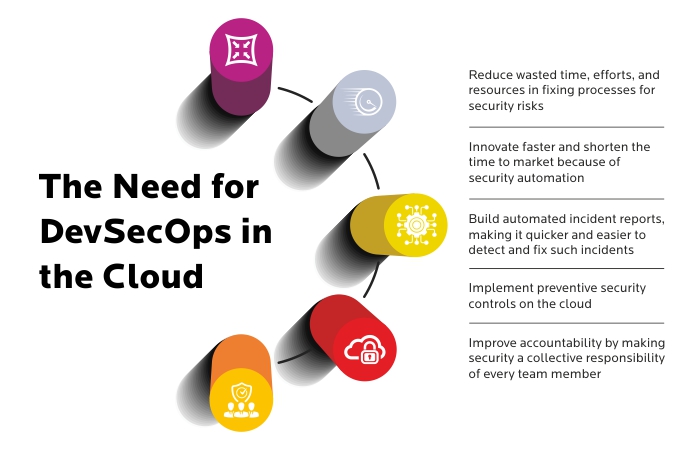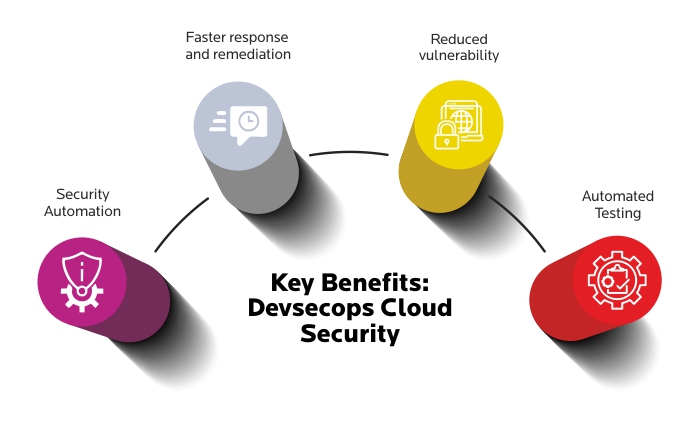What is DevSecOps in the Cloud?
According to CSA (Cloud Security Alliance), DevSecOps is the integration of continuous security principles, processes, and technology into DevOps culture, practices, and workflows. It brings together the traditionally siloed departments of development, infrastructure, operations, and information security to secure software development.
DevSecOps also puts the onus of accountability on every IT team member, making everyone - from a developer to a network engineer - a security owner. With DevSecOps, IT teams can run automated security tests throughout the application development life cycle on the cloud. As a result, speed, agility, innovation, and security become a top priority.
The Need for DevSecOps in the Cloud
DevOps focuses on developing applications at an accelerated rate to maintain a competitive advantage in a dynamic environment. Modern trends such as microservices, open-source, serverless computing, and API-first applications are built on the pillars of DevOps. While concentrating on the speed and frequency of releases, security and compliance can take a back seat.
Enterprises must adopt DevSecOps to integrate security into DevOps at every stage rather than retrofitting it later through conventional, perimeter-based models. Such traditional measures won’t be enough in a cloud-native environment as apps can be developed and deployed anytime, anywhere.
There’s evidence to support the need for security to be incorporated into the DevOps pipeline. The CSA has found that organizations can control security-related performance even in the initial days of development on the cloud when security is one of the guiding principles of software design and development.
With DevSecOps, enterprises can:
- Reduce wasted time, efforts, and resources in fixing processes for security risks
- Innovate faster and shorten the time to market because of security automation
- Build automated incident reports, making it quicker and easier to detect and fix such incidents
- Implement preventive security controls on the cloud
- Improve accountability by making security a collective responsibility of every team member
Here’s the best part - DevSecOps helps you automate security controls, reduce the reliance on manual checks, and speed up the entire development process.

The Need for DevSecOps in the Cloud
Devsecops Cloud Security – Key Benefits
In an increasingly virtual, hyper-connected world, cyberattacks are bound to happen. Safeguarding against such attacks warrants:
- Adopting a zero-trust approach to security
- Designing applications for security
- Automating quality checks, testing, and reporting
- Responding to incidents as and when they occur to minimize the damage done
DevSecOps helps meet the above-mentioned criteria through continuous testing and automation.
Security Automation
There’s a saying in software development: if you do the same thing three times, it’s time to program it. For applications on the cloud, it’s crucial to continuously monitor their performance, deployments of new releases, and perform regular security checks.
Manually taking care of these aspects can lead to insecure software being deployed, making the entire IT architecture vulnerable. The IT team spends more time rework to fix bad code, causing delays and inefficiencies.
Running automated scripts to monitor security and compliance controls is the way forward. With automation, the security checks can:
- Be continuous (whenever a new version or patch is deployed)
- Reduce bottlenecks in the app development life cycle
- Reduce costly downtime
- Detect and fix vulnerabilities in real-time
Automation in security helps enterprises meet their compliance and security goals quickly, and at scale.
While initial deployments might lead to delays or issues at the beginning, they can be fixed through subsequent improvements to the workflow.





